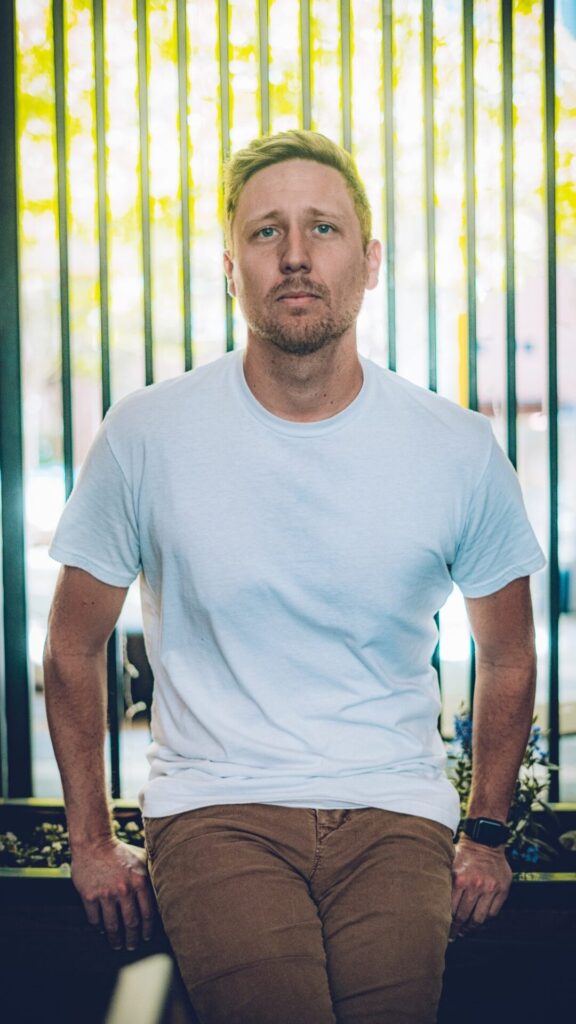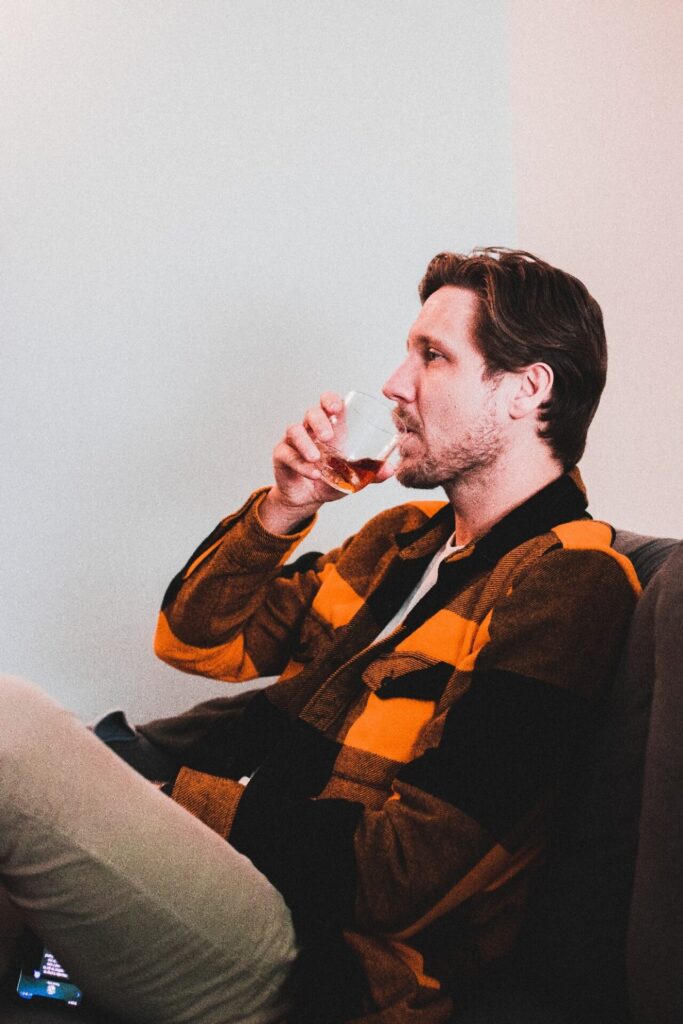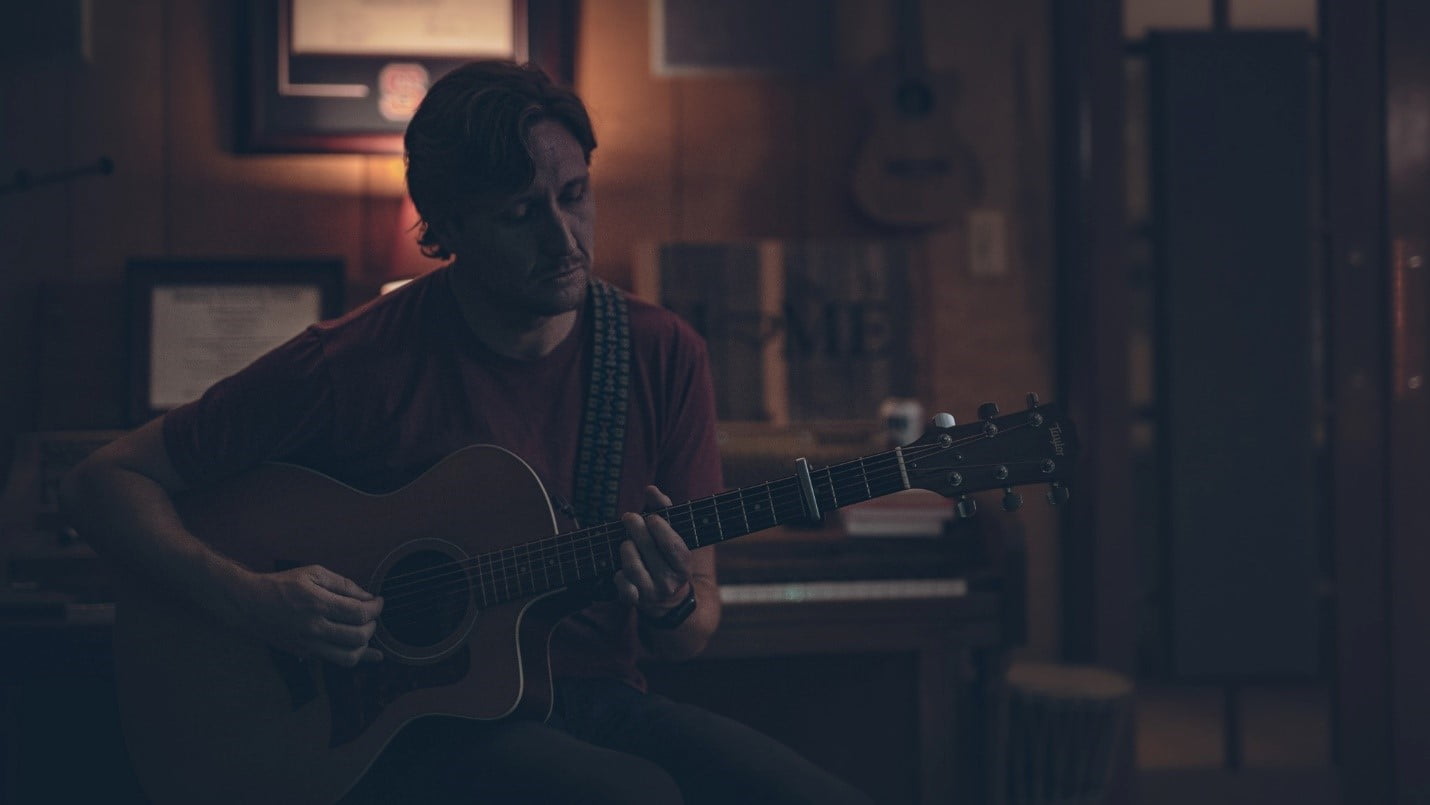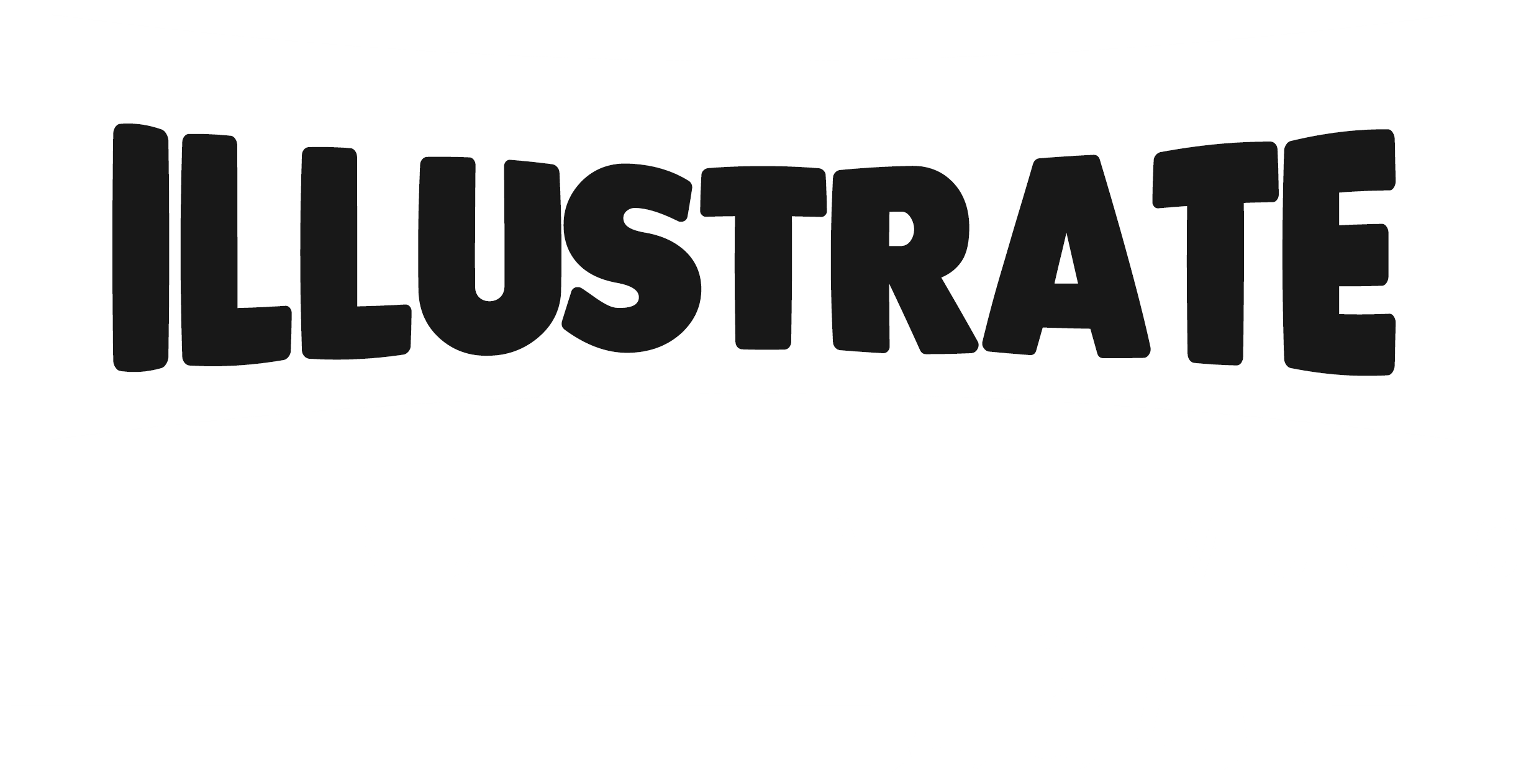HeartMouth vocalist Casey Allen digs up old bones at a relationship’s grave in “Six Feet Under” in an effort to find closure. Six Feet Under, which Riccardo Barletta and Lauren Light co-wrote, illustrates how past regrets and memories can hold you back from moving forward unless you finally confront them and lay old ghosts to rest. The publication date is June 10, 2022.
the idea behind Casey Allen’s HeartMouth. He has had several lung collapses over the course of his life, but he won’t let that stop him from passionately singing what’s on his heart. “I won’t let another breath be wasted or taken for granted because I understand what it’s like to have trouble breathing. The North Carolina native says, “I want to use every breath to sing about things we can all relate to.
The name’s simple meaning is to allow what is on your heart to be freely confessed through your mouth. HeartMouth complements his singer-songwriter style of music creation with modern pop textures. Allen’s mission is to simply share experiences through song that everyone goes through at some point in their lives. He writes about all the various emotions that make up the human condition. Allen’s lyrics are primarily about the human experience, according to a technician at North Carolina State University who said as much in an interview. His music, which draws inspiration from the difficult times in his life, is sure to touch listeners. When I’m happy, I don’t usually write music; instead, Allen said, “I just kind of live in the moment.” But when I’m having a hard time, music acts as a kind of therapy for me.
He previously played drums for the metal band Embracing Goodbye, which Brian “Head” Welch of Korn’s record company (Driven Records) signed in 2010. He was also one half of the folk-pop duo Season & Snare, which received an Al Roker Shorty Award at the Times Square Center in 2016 and was helped along the way by Aaron Paul from Breaking Bad. Allen’s first project that allowed him to leave the drum kit and share frontman responsibilities was Season & Snare. It makes sense that Allen’s career will move forward with him solely fronting HeartMouth after demonstrating that he is equally at ease using a microphone in front of the crowd as he is behind the drum kit.

HeartMouth intends to release a number of singles in the first half of 2022 before releasing their debut EP at the end of the year. You can anticipate seeing him perform in both solo and full band settings as the pandemic continues to subside. Check out his latest single and the exclusive interview below:
1. Can you tell us a bit about where you come from and how you got started? HEARTMOUTH: I’m from the Raleigh, NC area (born and raised), and I love it here. My parents bought a drum set for me when I was 11, and the rest is history from there. I knew immediately that music is the only thing I ever wanted to do. I picked up other instruments throughout the years, and began singing around the same time as well. Every time I’d sit down to try and learn a cover song, I’d get bored and wind up wanting to write my own original music instead. That’s why I suck as a cover artist, and rarely know how to play cover requests lol.
2. Did you have any formal training or are you self-taught?
HEARTMOUTH: I took lessons from Ivan Hampden (Luther Vandross, Beyonce, Usher) when I was a teenager, and learned a lot of fundamentals on the drums. I’ve had maybe two voice lessons in my life. Otherwise, I’m self-taught.
3. Who were your first and strongest musical influences and why the name ‘HEARTMOUTH’?
HEARTMOUTH: It’s hard for me to pinpoint a difference between my “first” and my “strongest” haha – I feel like all my musical experiences as a kid intertwined with each other and played a role into who I am today. My first show I ever went to was Reba McEntire. Then, I grew up listening to a lot of 2000s rock/emo (Taking Back Sunday, Underoath, Foo Fighters, Mayday Parade, etc). Years later, I discovered Bon Iver. That’s probably the first real time I felt absolutely moved by music in a way that I’d never been before, it became my life goal to try and write music that moves people the way Bon Iver’s music moves me. Vocally, Ryan Tedder (OneRepublic) has always been my greatest influence. As of late, I’ve been really moved by artists like Dermot Kennedy, Matt Maeson, Illenium, Noah Kahan, Sam Fender, and Holly Humberstone.
The origin of HeartMouth is super simple – wear your heart on your mouth. Be honest and vocal about how you feel.
4. What do you feel are the key elements in your music that should resonate with listeners, and how would you personally describe your sound?
HEARTMOUTH: HeartMouth is alt-pop that ranges from singer-songwriter, to rock, to 80s synth, to folk, and probably will just keep expanding sonically. HeartMouth encourages conversation about life’s harder topics – like mental illness, love, heartbreak, self-awareness, imposter syndrome, and empathy for others even when you can’t relate to them. My goal is to empower people that feel alone, and to build a community for people that constantly think about these things.

HEARTMOUTH:
This couldn’t be more true, and I feel like that’s an ever-evolving job that never really ends. Just a couple years ago, I was really discouraged with myself because my voice was always blowing out after singing. After a lot of self-reflection, I realized that it was because I wasn’t letting my true voice be what it was, and I was really trying to imitate my idols. It can be really hard to find that point of knowing who you really are, and not an emulation of the artists you look up to. Now that I’ve given in to letting my voice be what it is, I rarely find myself with fatigue and blowout like I used to, and hopefully I sound more authentic in the process.
As far as making music goes, I never went to audio production school haha. I learned how to produce and mix out of sheer necessity, because I was writing way more songs than I had the budget to actually pay for professional studio time. And since I’m hardheaded, I wasn’t going to let that stop me, so I just started learning myself – slowly and painfully hahaha. At some point, maybe I’ll release some of my earliest solo work so people can hear just how atrocious it was haha.
6. What’s your view on the role and function of music as political, cultural, spiritual, and/or social vehicles – and do you try and affront any of these themes in your work, or are you purely interested in music as an expression of technical artistry, personal narrative and entertainment?
HEARTMOUTH:
I used to think that politics should stay as far away from music as possible, because politics are divisive, and music is the one thing in the world that can bring people together. I still believe the latter of that, although politics has gotten so crazy lately that I feel it’s absolutely necessary at times. For example – I’m an advocate for equal rights. Lately, equal rights have been under attack in a lot of different categories. I think there is no limit to what music can do to bring light to these issues, and to give a voice to those going through these injustices. When you feel like you have a voice and that you’re not alone, that’s an incredibly powerful thing, and society can move because of it. When that happens, I still consider that an expression of technical artistry, so I don’t think those have to be contrasting writing goals.
7. Do you feel that your music is giving you back just as much fulfilment as the amount of work you are putting into it, or are you expecting something more, or different in the future?
HEARTMOUTH:
My answer may be slightly cynical here haha. I’ve been a complete one-man show for so long with HeartMouth that there’s never NOT anything to be working on. Whether I’m writing, producing, recording, mixing, mastering, marketing, making content for my socials – I’m literally always working on something. In the past, the amount of work put in verses what I’ve gotten back from it has been way off balance, but it never stops me. I love music too much for that, and that’s what it’s about at the end of the day. As long as somebody is moved by what I’m putting out, I feel I’m doing my job and that it’s worth it. My team is growing now, and I recently signed a deal with SoCal Records, and I’m excited to see what the future holds now that it’s not just a one-man show anymore.
8. Could you describe your creative processes? How do usually start, and go about shaping ideas into a completed song? Do you usually start with a tune, a beat, or a narrative in your head? And do you collaborate with others in this process?
HEARTMOUTH:
There’s a few different ways that the process starts, and the beginning part is where the true “magic” happens. After that, there’s a type of formula you can often follow to finish the song. Most often for me, I’ll get a certain lyric or a melody line in my head out of nowhere. That’s where the magic of it is – I couldn’t tell you how it pops up….it just does. Other times, I might play a certain riff or progression first on guitar or piano, and a melody will come to me from there. Every once in a while, I’ll sit and write the rest of the entire song from there in the same session, although I often don’t like to do that. I like to write a verse and a chorus the first day, and immediately start producing and recording it to get the vibe right. Then, I like to put it away and sleep on it. If I wake up the next day and I’m still just as excited about it, that’s my sign that it’s worth finishing. I love collaborating, although I only collaborate on songs a little less than half the time. It just depends on what’s going on, who is available, and if the song needs collaboration or if it needs to be intimate. I try to let the song decide what it wants to do in that regard.
9. What has been the most difficult thing you’ve had to endure in your life or music career so far?
HEARTMOUTH: Lung collapses lol. I’ve had four of them. Lung no worky, me no breathey, me no singey.
10. On the contrary, what would you consider a successful, proud or significant point in your life or music career so far? HEARTMOUTH: Winning a Shorty Award from Al Roker in Times Square because of music. The band I was in at the time live-streamed home performances, and Aaron Paul from Breaking Bad wound up finding us, and shared us out to his followers. Things took off from there very quickly, and the next thing I knew, we were in Times Square with actual celebrities and the whole thing just felt surreal. I remember DJ Khaled congratulating me, and that was the first moment I felt like I could be taken seriously as a musician, and that I was actually making it work.
KEEP IN TOUCH:
FACEBOOK | INSTAGRAM | TWITTER | SPOTIFY | TIKTOK | WEBSITE | YOUTUBE


